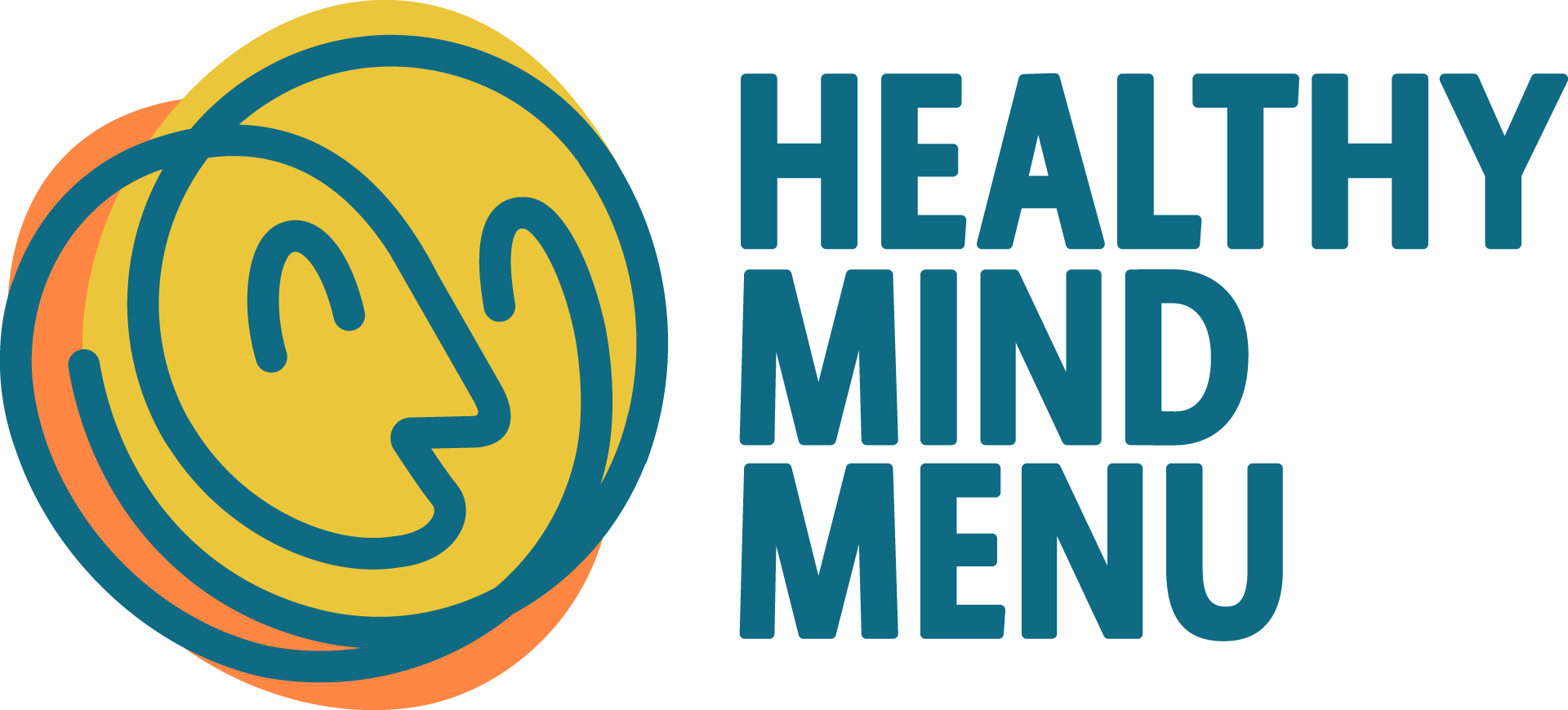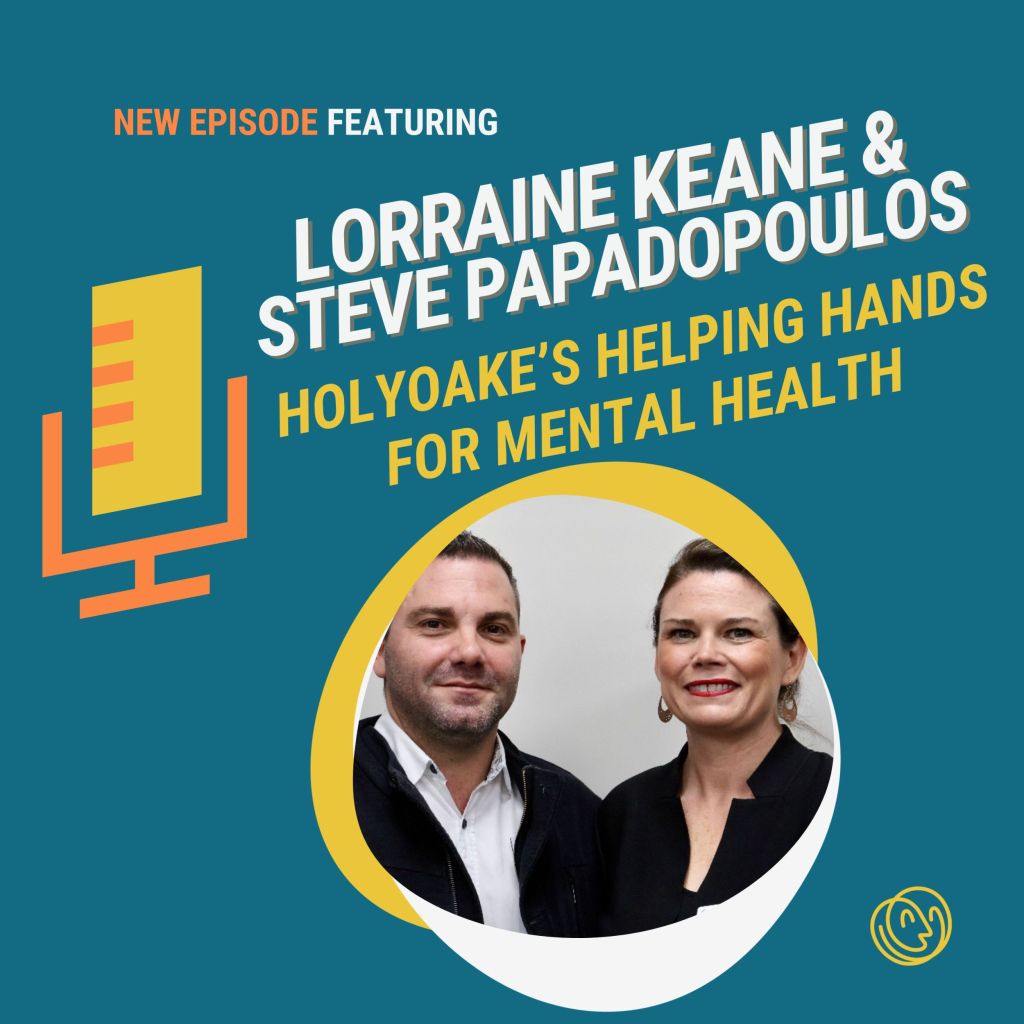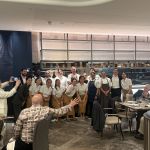Back of House, Front of Mind
“Back of House, Front of Mind” is a podcast presented by Healthy Mind Menu, an industry-led initiative that aims to improve the lives and normalise conversations around mental health for those working in the hospitality industry.
Welcome, Lorraine & Steve
Lorraine Keane is currently the Chief Executive Officer at Holyoake and Non-Executive Director at Community Arts Network and WA Network of alcohol and other drug agencies.
Lorraine has over 20 years of commercial and not-for-profit experience, having worked across a broad range of industries such as aged care, disabilities, culture and arts, and health. Lorraine’s area of expertise are leadership, organisational development, governance, and finance.
Lorraine is passionate about connection and believes as humans we are all hard-wired for connection. Through her work at Holyoake, she has the opportunity to practice connection on a daily basis through the delivery of Holyoake services to the community.
Steve Papadopoulos is the Prevention Services Manager at Holyoake. With a decade of expertise in the Alcohol and Other Drug sector and over two decades of personal and professional experience in both AOD and mental health domains, he brings a wealth of knowledge to his role. His deep-seated passion lies in aiding individuals and families as they navigate the intricate interplay between AOD issues and mental health-related traumas that can profoundly affect their lives.
Steve’s motivation and sense of purpose revolve around revitalizing the notions of community, connection, and hope to foster a holistic enhancement of others’ wellbeing. He firmly believes in the power of sharing and learning from the wisdom found in the journeys of individuals, considering it an invaluable life experience in itself.
Resources in this episode:
To contact Holyoake
www.holyoake.org.au
Email clientservices@holyoake.org.au
Call 0894164444
Alcohol and drug support line offered 24 hours a day 94425000 or 1800198024
Parent and family support line 94425050 or 1800653203
For 48 years, Holyoake has been at the forefront of delivering top-tier alcohol and drug services, a vision realised by its founder, John Keating. In the early 1970s, when problem drinking was often treated as a simple disease with a “detox and sober up” approach, Keating was determined to find a more effective path. During a Churchill Fellowship in the USA, he learned innovative ways to address problem drinking, leading to the establishment of Holyoake in 1975, in partnership with Anita Day. John’s influence extended beyond Holyoake, as he played a pivotal role in founding WANADA and aiding in the establishment of Cyrenian House.
Holyoake has always been distinct in its approach, recognising early on the need for a family systems perspective in treatment and support. As the organisation matured, it also acknowledged the importance of addressing the mental well-being of its consumers, as 70% presented with co-occurring issues.
Vision: We empower people to change their lives, making better futures possible
Purpose: Using evidence-based practice, we support individuals, families and communities that are impacted by alcohol, other drugs and mental health issues.
Operating extensively across WA in Perth Metro and the Wheatbelt, Holyoake provides in person individual and group counselling with individuals, families and communities also supported in harm minimisation and prevention activity. Telehealth is also offered to remote communities to improve access to services. Holyoake is expanding its reach by setting up community AOD prevention services in the Kimberley, Midwest, Goldfields, Southwest and Great Southern.
With over 70% of consumers experiencing mental health concerns, Holyoake has achieved accreditation against mental health standards, allowing it to offer standalone mental health services. Understanding the intricate links between depression, anxiety, isolation, and AOD dependencies is crucial.
For the hospitality sector, Holyoake offers a range of services at its Victoria Park offices, including:
Individual Counselling
These include a parenting program for those affected by their children’s AOD use, a relationship-focused group, and separate groups for men and women dealing with AOD issues. These 12-week programs offer education and peer support, equipping participants with effective strategies and tools.
SMART Groups: Casual drop-in groups for individuals seeking peer support.
Children and Young Person Programs: Providing support to children and young people impacted by their parents’ AOD use, focusing on building healthy attachments.
At the Midland offices, services include individual counselling integrated with a medical team consisting of doctors and nurses, as well as SMART groups. In the Wheatbelt, Holyoake offers individual counselling and integrated services teams, providing wraparound support with access to lived experience workers, counselors, and GPs.
Across all services, Holyoake places a strong emphasis on including individuals with lived experience as part of the support network, ensuring a holistic approach to recovery.
Please provide any facts and stats that may help our listeners understand the importance of your cause, and why you do what you do.
All of what we share today will be relevant to the hospitality sector, given that over 70% of the population drink, and 1 in 3 exceed the guidelines for alcohol use.
At Holyoake all of our services are free, you don’t need a referral, and you don’t need to abstain from AOD we take a harm minimisation approach. Each year we see almost 4000 individuals. The main primary drug of concern is alcohol use and that has been consistent for years.
People being more aware of alcohol consumption and what a standard drink is shouldn’t be underestimated. The guidelines recommend no more than 10 standard drinks per week with no more than 4 standard drinks in one day.
AOD misuse knows no social boundaries it can impact anyone.
Employers and managers play a crucial role in creating supportive workplaces. What advice would you give to them to be proactive in addressing issues and fostering a culture of support and understanding?
[Lorraine] I think particularly in the hospitality sector owners and management need to set the standards in terms of behaviours and seeking support for AOD misuse. Staff need to feel safe in speaking up if they see or experience a behaviour that is not aligned with the organisation’s values and purpose. I think specifically for the hospitality sector where serving alcohol is part of the role it can normalise drinking as downtime so it’s important that staff are given the opportunity to bond away from alcohol. Having worked in hospitality myself the culture can be that after work we have a wine together and debrief about the shift etc. and that can easily lead to a big night out. Management can set the tone and perhaps at the end of the shift suggest bowling, movies, dinner etc. so that we are not always socialising in alcoholic venues. There was an amazing piece of work done by Turning Point that can assist managers with supporting staff and setting culture regarding alcohol use, search www.turningpoint.org.au and search for drinking cultures. Deep dive at Hospo Drinking Cultures.
For someone who suspects that a friend, family member, or colleague may be struggling, what advice or steps would you suggest they take to approach the situation in a supportive and non-judgmental way?
You need to be careful when a person seeks help. Your language and tone are very important, it takes courage to seek help and our response is critical. In the podcast, Steve will jump in and talk about stigma shame, language use, etc.





